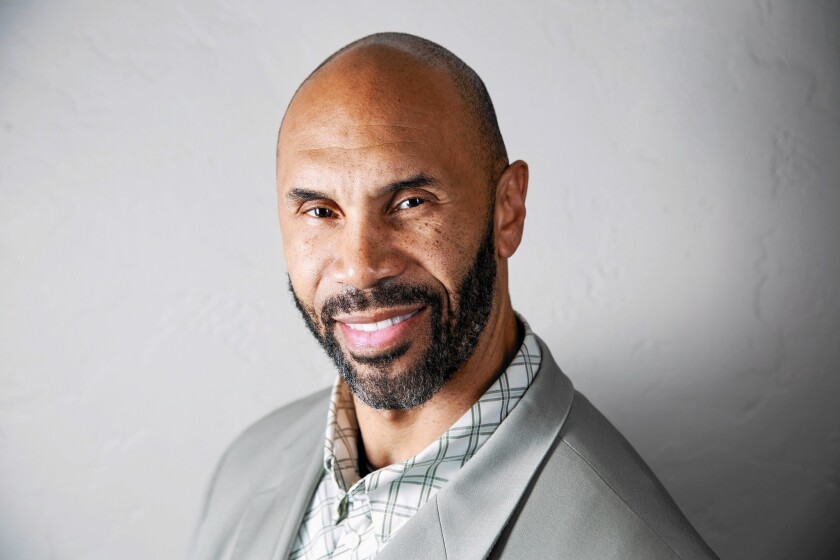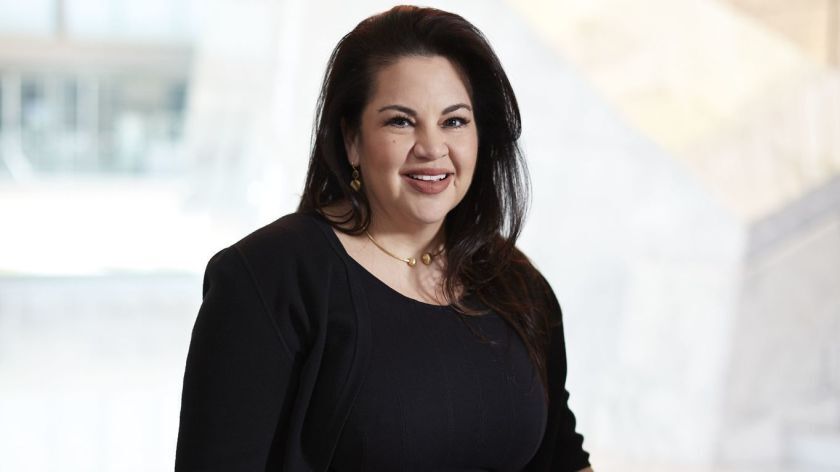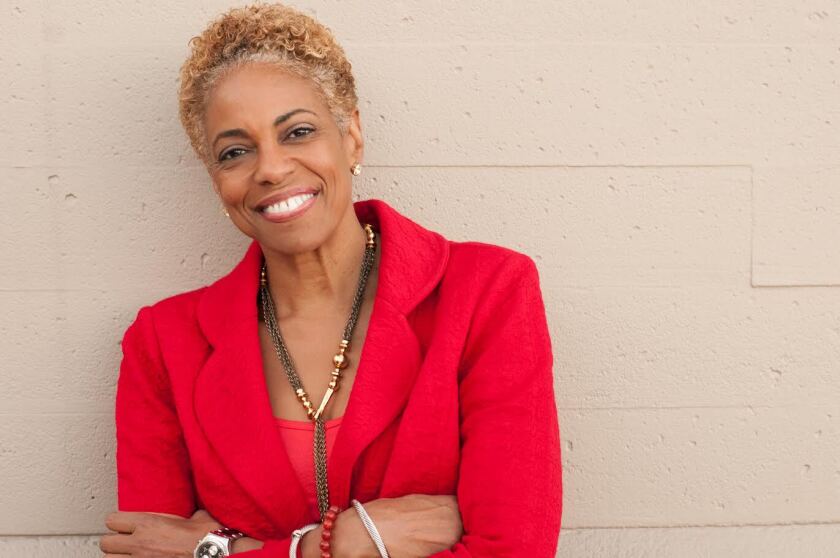Protests against police brutality prompted leading entertainment companies to declare their support for social justice causes and diversity.
But those same companies have a poor track record when it comes to hiring and promoting black executives into their highest levels, critics say. People of color working in Hollywood, including successful producers and directors, have expressed frustration over the chronic lack of Black and brown executives in decision-making positions.
“Hollywood has to look itself in the mirror,” said Darnell Hunt, dean of social sciences and professor of sociology and African American studies at UCLA. “Is it part of the problem — or part of the solution?”
Five years after the #OscarsSoWhite campaign called out the lack of people of color among acting and directing nominees at the Academy Awards, and two and a half years after the #MeToo movement forced Hollywood to address its treatment of women, the industry is facing more scrutiny. Protests in support of Black Lives Matter, following George Floyd’s killing by a white Minneapolis police officer, have prompted entertainment and media companies, including the Los Angeles Times, to undergo self-examinations.
Advertisement
A review of the senior leadership at the six major entertainment players — Walt Disney Co., AT&T Inc.'s WarnerMedia, Comcast Corp.'s NBCUniversal, ViacomCBS Inc., Sony Pictures Entertainment and Netflix Inc. — shows that the top ranks remain overwhelmingly white.
Of the nearly 230 senior corporate executives, division heads and other senior leaders at the entertainment companies analyzed by The Times, 19% are people of color, and 10% identify as Black. Nearly 40% of the U.S. population was either nonwhite or Hispanic in 2019, according to U.S. Census Bureau data, while more than 13% was Black.

Darnell Hunt, professor of sociology and director of the Ralph J. Bunche Center for African American Studies at UCLA.
( Los Angeles Times)
The Times relied on the companies’ publicly disclosed leadership web pages and reviewed them for accuracy with the firms. In some places, The Times included additional data from the companies. The companies differ significantly in how they disclose their management teams and structures, making comparisons difficult.
Advertisement
Nonetheless, UCLA’s Hollywood Diversity Report, released in February, reached a similar conclusion in its review of 11 major and midsize film studios. Hunt and other researchers found that studio heads were 91% white. A level down, senior executives were 93% white, while unit heads were 86% white.
Most of the companies declined to speak publicly about their records on inclusion.
But the lack of diversity among senior executives is an acute problem for Black filmmakers and agents trying to get authentic stories made about people of color.
Advertisement
“Things are never going to change until we have Black partners at the big talent agencies and Black people in positions to greenlight movies,” said prolific independent film producer Datari Turner (“Uncorked”). “Things will never change until these positions have people of color.”

Much of Christy Haubegger’s work in her new role as executive vice president and chief enterprise inclusion officer will be ensuring that WarnerMedia promotes women and people of color.
(Joe Scarnici / Getty Images)
On-screen diversity has improved in recent years, due to audience demand, but many creatives say they still face challenges getting their voices heard and understood in white-dominated spaces.
“You see more African Americans in talent, on-screen as a director, as a producer, but not necessarily at the C-suite level,” said Arthel McDaniel III, a principal at law firm Polsinelli LLP, who has represented entertainment companies. “African Americans are still not stakeholders in these organizations, and that’s really what has to change.”
Advertisement
The numbers tend to improve somewhat lower in the ranks. At WarnerMedia, 20% of U.S. employees ranked vice president and above were people of color, according to the company’s diversity report released in September. Nonwhites comprised 34% of middle managers.
Still, the top tiers of Hollywood remain predominantly white. The widely read newsletter the Ankler recently published a broadly circulated post showing screenshots of the leadership rosters from the companies’ corporate websites that illustrated the point.
“Just by engaging in business as usual, they are guaranteeing that we are going to see the same thing over and over again,” Hunt said.
The problem isn’t new. Not until 2016 did a Black executive become the head of a major broadcast network, when Channing Dungey was promoted to president of Disney’s ABC Entertainment. Now she is VP of original content at Netflix.
Advertisement
Billie Green, who was head of the Hollywood/Beverly Hills NAACP office in the 1990s, recalled visiting the head of a prominent studio because of complaints to her organization about a manager who displayed on his desk a doll with a noose around its neck.
Back then, there were even fewer executives of color, Green said, but her group focused its efforts on winning roles for Black actors and opening the doors to TV writers’ rooms. The campaign intensified after the 1999 broadcast TV season launched with a sea of white faces.

Vernā Myers is vice president of inclusion strategy at Netflix.
(Netflix)
“Some of the things that we are seeing today have been going on for a long time,” Green said. “But they got swept under the rug.”
Advertisement
A combination of factors helps explain the entrenched whiteness of media and entertainment. A long-standing culture of hiring and promoting based on established relationships and recruiting from the nation’s most prestigious schools makes it harder for new voices and executive talent to get a foot in the door.
For decades, the traditional career path for executives has resembled an apprenticeship system in which entry-level jobs, such as working as an assistant at an agency or production company, eventually lead to better-paying work. But those starting jobs are often taken by people with the means to get by in Los Angeles on meager pay.
What’s more, executives tend to hire and mentor people who look like them, said Christy Haubegger, executive VP and chief enterprise inclusion officer at WarnerMedia, which owns brands that include Warner Bros., HBO, TBS and Cartoon Network.
“Anything that’s apprenticeship-based has a lot of subjectivity,” said Haubegger, who previously worked at Creative Artists Agency for 14 years. “We’ve got a system that has both a financial gate around it and a great deal of subjectivity with mentoring and sponsorship built into it.”
Advertisement
Despite some efforts to recruit through corporate inclusion programs and scholarships, companies often fail to retain diverse hires. Studio executives privately acknowledge that they need to do more to help nurture careers.
The lack of Black and brown people at the top can also prove discouraging for new employees of color, who sometimes leave because they don’t see a way up the ladder, executives and experts said.
“Our work is twofold. It’s to bring people in, but it’s also to make sure that when they get in, that this is an environment that is conducive to their success,” said Vernā Myers, vice president of inclusion strategy at Netflix. “It doesn’t really matter if you have people when you’re not listening to them.”
Efforts to address systemic racism in Hollywood intensified in the wake of the nationwide protests.
Advertisement
Haubegger said WarnerMedia has been examining data to establish where it is falling short when it comes to recruiting and retaining people of color and other underrepresented groups, including trying to find out if certain groups get promoted faster than others. That process began in April, before the protests.
Of WarnerMedia’s 60 senior executives, division heads and U.S. direct reports, 20% are people of color, and 8% are Black. Haubegger said studios and media companies need to set up inclusion strategies that go beyond vague promises to “do better.”
“That’s not a strategy. And in no other part of your business would that pass as a strategy,” she said. “So we’re trying to bring the level of discipline and strategy to this that we do for every other part of our business.”
Advertisement
Several companies hosted virtual town halls and guest speaker discussions on racism and unconscious bias for staff in the weeks after the demonstrations began. Sony Pictures held a Juneteenth panel featuring Georgetown University African American studies professor Robert J. Patterson and labor attorney Rodney S. Diggs.
Sony’s 25 corporate executives and division executives include four Black executives (16%) and five people of color (20%).
There have been broader efforts to curb biases in hiring and promoting. Netflix puts its recruiters through a series of training sessions on topics including “hiring for inclusion” and also works with groups such as /dev/color, a nonprofit that supports a network of Black software engineers.
Netflix’s eight-person senior leadership team currently has no Black executives. However, the Los Gatos-based streaming giant this week named Endeavor’s Bozoma Saint John as its new chief marketing officer, starting in August.
Nine of its more than 100 U.S. vice presidents are Black, or 8%, up from three in 2017. Nearly 30% of Netflix’s U.S. vice presidents are people of color, the company said.
Advertisement
“The exclusion of certain groups in society and corporate America didn’t happen overnight, and it’s not going to change overnight,” Myers said. “You have to actually create a plan that is really about changing the company.”
At ViacomCBS, a team of Black executives was formed in the last few weeks dedicated to the success and advancement of Black employees. Six of ViacomCBS’ top senior managers and division heads are people of color (21%), while five are Black (18%), including BET president Scott Mills.
“We fundamentally believe that a more diverse and inclusive company — that does business with equally diverse and inclusive partners and talent — is good for business and our communities,” ViacomCBS CEO Bob Bakish said in a note to employees last month.
NBCUniversal created the Talent Lab to develop and train executives but discovered that wasn’t enough. The company was struggling to retain executives who had reached the first rung of management, so it focused on intensive and individualized attention. Beginning in 2018, it launched a program in which senior executives would “sponsor” diverse young executives who show potential.
Advertisement
Of NBCUniversal’s 18 top executives and division chiefs, four (22%) are people of color, and two (11%) identify as Black. The broader executive leadership team, comprising CEO Jeff Shell and first- and second-level direct reports, is 21% people of color and 5% Black, according to data provided by the company.
Disney has several ongoing diversity and inclusion initiatives. Walt Disney Television last July launched its Executive Incubator Program, meant to assist up-and-coming executives and give them exposure to multiple aspects of the business. The goal is to place those executives at the end of the two-year rotational program.
The Times’ review counted 90 senior Disney executives, about 7% of whom are Black and 19% are people of color. Disney has a large number of senior executives running business segments, including parks, streaming services and multiple film studios.
The company in 2017 hired former Toyota executive Latondra Newton as senior VP and chief diversity officer and this year named Tara Duncan as president of cable network Freeform. Across Disney’s total U.S. workforce, 44% are people of color, according to a 2019 corporate responsibility report released in March.
Advertisement
For Disney and other studios, diversity is good for business, given how much they rely on movies and TV shows that depict Black people and culture. Companies have seen massive success by partnering with nonwhite filmmakers, including Ryan Coogler, Michael B. Jordan, Jordan Peele, Shonda Rhimes, Issa Rae and Kenya Barris.
Green, the former NAACP leader who is now a deputy for Los Angeles City Councilman Herb Wesson, said systemic change is overdue.
“We must listen to the people, and we must change the industry in how it operates today,” Green said. “No longer can we be quiet.”
Staff Writer Stacy Perman contributed to this report.
"Hollywood" - Google News
July 01, 2020 at 07:10PM
https://ift.tt/2CPQhcD
Why Hollywood's C-suites have so few Black executives - Los Angeles Times
"Hollywood" - Google News
https://ift.tt/38iWBEK
Shoes Man Tutorial
Pos News Update
Meme Update
Korean Entertainment News
Japan News Update
Bagikan Berita Ini














0 Response to "Why Hollywood's C-suites have so few Black executives - Los Angeles Times"
Post a Comment